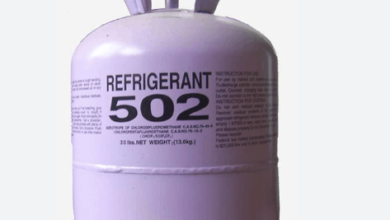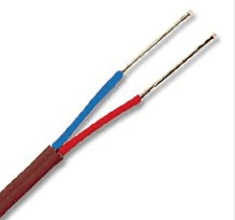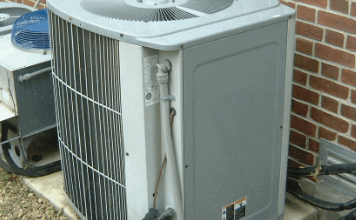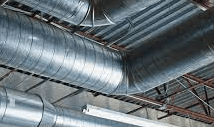Tankless Water Heater Recirculation Pump – General Overview
HVAC systems and heating systems in different buildings may differ. And there are many different applications that you can find in the market. Tankless water heater recirculation pump applications are one of these systems. Here you can find general information about these systems. And you can decide if will it be worth applying them to your home.
Tankless Water Heater Recirculation Pump Systems
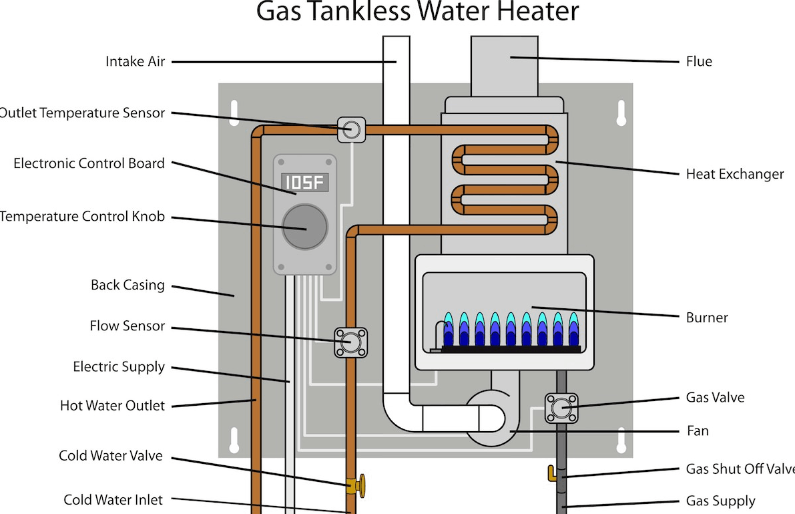
If we need to describe their general working principle of them, there is a circulation pump and a tankless heater system that prevents the storage of cold water. In the piping system, there is water that circulates through the system. And the pump system circulates this water and makes the water goes through the tankless heater. And the hot water circulates the system.
So, the most important advantage of these systems, you will not wait for hot water once you open a faucet that is very far away from the heater.
In conventional applications, there is a tank that stores water. And the heater system heats the water on that tank to provide hot water to your taps or other applications. But you need to wait for the heating of the water after you open the faucet. The system activates when you open the faucet system.
Advantages
- As we stated above, the first advantages that we can consider are, they are generally very useful applications to save water. Because, once you open the faucet or other plumbing elements, you need to wait for the hot water. During this time, you lose lots of water coming through the faucet. But with the tankless water heater recirculation pump system, you will not need to wait for the heating of the water.
- Another advantage is, these systems are generally much more sustainable. Because you will not have much lower elements.
- You will not need a tank for storage. So, you will save space.
- If some of your faucets are very far away from the heater system, a tankless water heater recirculation pump will be a very good solution for you. Because, if the range increases, the time that you need to wait for the heating water will increase.
Disadvantages
Also, it is very important to consider the general disadvantages of these systems.
- In general, the building costs of these applications are more expensive than ordinary and conventional HVAC applications. Because there are special vale systems that recirculate the water inside the piping.
- Also, there will be a constant energy expense to hold the water inside the pipes hot. So, you may see a difference in your bill. If you want to have all luxury to get hot water instantly from your faucets, you need to pay slightly higher money for it.
So, Does It Worth It?
This is the question that comes to mind. It completely depends on you. If the luxury that we explained to you is important, and if the difference in your bill is not important to you, it will be worth it.
But, if you are thinking strictly about the energy spending of your home, conventional heating applications will be much better for you.
What are the Costs?
The general costs of this system can change according to the size of your home and the capacity that you need. But in most cases, the general installation costs will be around $500-$1000 including all the expenses. This is generally slightly higher than the other conventional applications.
But also, you can consider buying a recirculating pump only for a tankless water heater. First of all, be sure that the system is attachable and fits. So the general costs will be around $200-$400 according to the brand and the quality of the pump.
The price of the tankless water heater also can change according to the capacity and brand. But most of them will cost around $350-$750.
Will a Recirculating Pump Work with Tankless Water Heater?
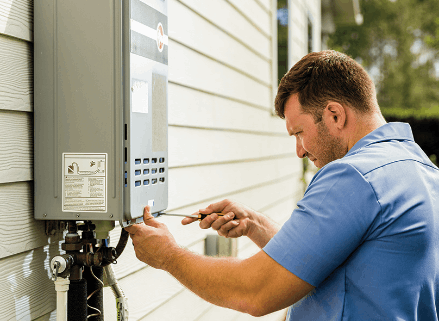
Yes, it is a very common application that people decide to build in their homes. Because they are every useful system that provides a good amount of hot water instantly when you open the faucet of your home. There are certain advantages and disadvantages that you need to consider. And we explained all of them as you see above.
Where Do You Put the Recirculation Pump in a Tankless Water Heater?
There is a special place where you can easily attach the recirculation pump right near the tankless water heater. You just need to attach it correctly and attach the electricity to the pump. There are three inlets for the tankless water heater. The first one is the water inlet, and the second one is the pump attachment which is generally the middle side. And the third one is the gas inlet. But it will be very useful for you to check the general user’s instructions for the tankless water heater system.
Do Recirculation Pumps Waste Water?
This is a very common question that people are constantly asking in general. The recirculation pumps will not waste water. The most important advantage of these applications is to save water. Because they provide the hot water instantly once you open the faucet. In the conventional system, you need to open the faucet and wait for the heating of the water. During this time, you waste lots of water.
Do Recirculate Pumps Damage Pipes?
The water flow inside the pipes erodes the pipes. If we think of the conventional systems, there is no constant water circulation inside the pipes. This constant circulation inside the pipes may erode the pipes much more easily. So, we can say the recirculating pump systems can erode the pipes faster.
How Long Do Recirculating Pumps Last?
These systems are generally long-lasting. But the answer may vary according to the brand and the quality. An average application may vary around 5-10 years. But if you buy a very cheap application, the life of the system can be low as 2 years.
Conclusion on Tankless Water Heater Recirculation Pump
So, these are the general things that we can state about these applications. They are very common in most buildings and flats. And by considering the advantages and disadvantages, you can decide to build one of these systems.
If you have additional comments and questions about this topic, please leave them below.
Check the related topics about HVAC;
Refrigerated Air – What is That? Advantages, Disadvantages
T Type Thermocouple Guide – Features, Uses and Advantages
40 Gal Pressure Tank – Will It Be Sufficient?
